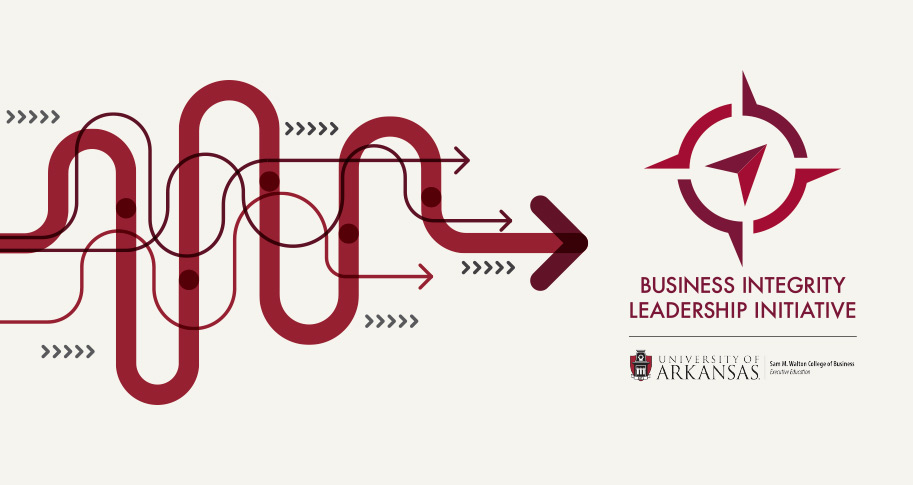
After an illustrious career spanning three decades in the corporate world, I found myself transitioning into an academic setting at Walton College, eager to contribute to the development of future business trailblazers. Under the visionary leadership of Dean Matt Waller, Dean Waller and I conceived a groundbreaking strategic project – the Business Integrity Leadership Initiative (BILI).
This endeavor aims to equip students with an astute awareness of ethical challenges that await them post-graduation. Our idea matured into a fully operational program within three and a half years, achieving significant milestones along the way. This article offers an insight into our remarkable journey and serves as a practical blueprint for those looking to launch strategic initiatives within higher education institutions.
Fostering the Vision: A Blend of Professional Experience and Acute Observations
Throughout my professional career, I had the privilege of working across diverse industries. This includes 20 years at the world’s largest retailer where I worked primarily in the legal, ethics and compliance departments. In my various roles, I mentored numerous aspiring employees, mid-level managers, and executives by helping them navigate complex legal, ethical and leadership challenges. Despite the vast spectrum of experiences, one common thread ran through the conversations – a gap in understanding the gravity of ethical impropriety and the skills to confront such issues effectively.
This sparked an idea to develop a platform in a college setting, the perfect arena to reach potential business leaders on the threshold of their careers.
Although the study of ethical theories is part of most curricula, the language of ethics in a business context is vastly different. The key was to seamlessly blend theory with real-world practices, ensuring that students could apply abstract concepts in concrete situations. Many of these ethical issues include those that arise from organizational structures, financial targets, incentive systems, technology advancements, sales negotiations, product launches, marketing choices, management of people, and more.
Thus, the Business Integrity Leadership Initiative was born. We aimed to underline that ethics is the cornerstone of effective leadership and permeates all aspects of business.
Constructing the Strategy: Lessons from Experience and Research
The strategy for the Business Integrity Leadership Initiative was sculpted from my years of corporate experience and extensive research. I consulted with numerous universities running ethics initiatives to understand what worked, what did not, and what constituted success in each setting. Two central strategic principles emerged – practical approaches to ethics using real-life cases and experiential learning. However, a glaring gap remained – the struggle to integrate ethics across the curriculum and a tangible way for students to display their ethical competency.
These findings led to a unique strategy focusing on integration, practical application, experiential learning, and credentialing that students could showcase. The strategy's essence is captured in the initiative's vision and mission statement and explained in my Walton Insights article, “The Integrity Crisis and 7 Things Business Schools Can Do About It.”
From Strategy to Implementation
Implementation posed its unique challenges.
In a university setup, unlike a corporate one, the buy-in for initiatives is decentralized and dispersed due to a university's structure and the distinction between faculty and staff. Nevertheless, securing the visible support of the primary administrative leader (the business school dean) is paramount. This support can be shown through sponsorship of the initiative as one of the dean’s strategic endeavors, internal and external messaging, participation in events, and influence with donors, alumni, faculty, staff, and the business community at-large.
Within a university, faculty support is also essential. With the help and support of the dean and department chairs, we set up an academic advisory board with tenured representatives from the various departments within the business school. As the new founder and executive chair of the initiative, I formed individual relationships with each department chair, members of the newly formed academic advisory committee, and other faculty. I shared the strategy and took feedback onboard which guided the implementation plan.
We also created a staff advisory board with the help of the Dean’s Chief of Staff that was comprised of influential staff members from various functions across the business school. We kept the staff and academic advisory board engaged through a regular cadence of meetings to keep them informed and elicit their feedback and support.
Understanding that our initiative was student-centric, we also created a dedicated student team of graduate and undergraduate students through a selective process and offering them a small stipend for their work. Additionally, as the initiative grew in scope and scale, we added full-time support staff to assist with its activities and outreach.
To engage the business community in our efforts, we developed a diverse, global external advisory board, which serves as a bridge between the business school and the corporate community. The external board is comprised of 20 current and former C-suite leaders and corporate board members. They represent twelve different industries and a mix of both public and private companies. The board meets quarterly and engages in thought-provoking conversations with thought leaders on various ethics and leadership topics. They also serve as external advisors for the initiative, guest lecturers in classes, program speakers, thought leadership podcast guests, mentors for MBA students, and judges for student programs.
Adequate funding for initiatives such as this is critical to their overall success and staying power. Operating funds for our initiative come through charitable contributions provided by the board members. This is a common funding mechanism for initiatives. The most enduring initiatives, however, are those that receive funding from an endowment. Endowments ensure a continued revenue stream for the long run. Given our initiative's success, a charitable endowment fund has been established and is seeking more funders.
Sowing the Seeds of Ethical Leadership: Content, Curriculum, Credentials and More
With the internal and external infrastructure in place, we began developing a library of thought leadership content. I authored numerous articles for Walton Insights and LinkedIn. We also developed Business Integrity School video and podcast series, which I host, in addition to being a frequent podcast guest for other podcast series and a keynote speaker for events. We promoted the educational thought leadership on the initiative’s website and social media channels via LinkedIn, Instagram, podcast providers, such as Apple and Spotify, and YouTube.
Introducing the topic of integrity was moved to the freshmen and integrated into the “Welcome to Walton College” course that all first-year students take. The students learn about the initiative in this course and one of their early assignments is to follow the initiative on Instagram as it is one of our main communication channels.
We developed on-campus programs around six core ethics principles with the content integrated into various courses. The programs consist of industry expert guest speakers and an accompanying book or podcast series centered around one of six core ethics principles. The speaker events are recorded and thereby available to faculty and students via our intranet in successive semesters.
Credentials were also created for students and community members to earn and then display on their LinkedIn profiles and their resumes. The credentials show a level of competency in ethics and leadership.
Two types of credentials were built and integrated into various courses: one for each core ethical principle and another for ethics overall. Students earn a credential covering a core ethical principle by completing all elements of the program, which includes listening to all guest speakers and writing a reflection for each that explains their main take-aways and how they will use the information learned in the future.
Students can also earn a credential for business ethics overall. Students earn this self-paced credential by engaging with content of their choosing from the initiative’s extensive thought leadership library and educational social media platforms. They then write reflections on what they learned from each thought leadership piece.
The program includes an experiential component at the MBA level. Groups of second-year MBA students are given a challenge. They are told to think of something good to do to make the world a better place and then go do it. These experiential ethics projects have already led to real-world impact, like the case of Montay Coffee, which grew from a class project to a successful business all in less than one year.
The Path to Success: Key Learnings and Future Directions
The initiative's journey from an idea to a reality yielded several key takeaways. Integrating practical, relatable, and relevant content into the curriculum was pivotal as was offering thought leadership and credentials to highlight ethical competency. Furthermore, hands-on experiential learning added immense value.
The success of the initiative, however, is not an endpoint but a continuous journey. As I write this, we are already charting the course for the initiative's next exciting chapter. Stay tuned!






